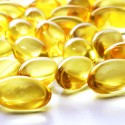Today’s consumers are no strangers to fortified foods, but is the voluntary fortification of novel “health” beverages really beneficial? A study by Dachner N et al, presented in Applied Physiology of Nutrition and Metabolism, suggests that it may not be.1 The study was conducted in Canada and compared the nutrient content and health claims of… Continue Reading
Category Archives: Micronutrients

Conversion of Units for Vitamins A, D, and E
Unit Conversions The contents of three ingredients (Vitamin A, D, and E) are expressed as International Units (IU) on dietary supplement and food labels. Guidelines for converting units of IU to mg are given below. For these calculations, the formulas are: • To convert Vitamin A as retinol: From IU to mcg: IU * 0.3… Continue Reading

Why Do Nails Split, Crack or Peel? – Possible Nutritional Causes
If you are getting splitting, brittle or peeling nails once in a while, you are not alone. It seems strange when your healthy, strong, beautiful nails one day start peeling and splitting; and you wonder why that is happening to you. You are thinking back and wondering what did you change in your daily routine… Continue Reading

Does Vitamin E Slow Alzheimer’s Disease Progression?
Vitamin E is a fat-soluble vitamin that acts as an antioxidant in the body. In previous studies, vitamin E has been shown to be beneficial for slowing cognitive decline for moderately severe Alzheimer’s disease. In a study released in The Journal of the American Medical Association, researchers looked at effects of vitamin E on individuals… Continue Reading

High Fructose Corn Syrup, Are We Still Missing Something?
There are many articles and blogs over the internet that debate the question if High Fructose Corn Syrup (HFCS) is associated with the high rate of obesity and diabetes that we are observing today. I feel a lot of the controversy is due to the fact that the increased use of HFCS parallels the increase… Continue Reading

Is Vitamin D Lost During Cooking?
Vitamin D deficiency is of a great health concern for both children and adults. Inadequate vitamin D status is associated with risk for cancer, cardiovascular diseases, diabetes, inadequate immune defense, asthma, allergies and more. Vitamin D is present in foods of animal origin such as fish, meat, eggs, milk and in some types of mushrooms.… Continue Reading

Replenishing Electrolytes
Electrolytes are minerals such as sodium and potassium that are essential for normal bodily function, but during exercise these substances are lost in sweat. In just an hour of moderate physical activity it is possible to sweat about 2 liters and each liter of perspiration contains around .9 grams of sodium and .2 grams of… Continue Reading

Nutritional Supplementation of Inpatients Suggest Health and Cost Benefits
Malnutrition of patients in the hospitals is a serious but under-watched problem. Malnutrition may slow down the healing processes and reduce effectiveness of medications in patients. Malnourished patients also have higher risks of poor outcomes, including increased length of stay, healthcare costs, complication costs, readmission and even mortality. Thus, several research works have already been… Continue Reading

Asthma and Allergies may be Associated to Vitamin D deficiency
The prevalence of asthma has increased significantly since the 1970s. In 2011, 235-300 million people globally were diagnosed with asthma, and caused 250,000 deaths. Worldwide, the rise in prevalence of allergic diseases has continued with the rise of industrialization. It is estimated that 40-50% school children currently suffer from allergens. Asthma morbidity is especially high… Continue Reading

Sunshine or Mushrooms for vitamin D?
Our ancestors used to collect mushrooms in the fall and dry them out in the sun to preserve for winter. Is it only a coincidence that mushrooms that were exposed to UV radiation are found to have a good amount of vitamin D or is it our ancestors instinctively knew that? Today vitamin D deficiency… Continue Reading
Micronutrients
Micronutrients are nutrients that are required for healthy metabolism to occur in the body to. Micronutrients literally means micro=small amounts (less than 100 milligrams/day) of nutrients. Micronutrients include vitamins and minerals.
Vitamins are organic molecules that are important for maintaining adequate health. There are 13 total vitamins that have been identified. These are broken into two categories Water-soluble and fat–soluble vitamins. They differ by the way they are absorbed and stored in the body. The water-soluble vitamins are: all the vitamin Bs (B1 or Thiamin, B2 or Riboflavin, B3 or Niacin, B5 or pantothenic acid, B6 or pyridoxine, B7 or biotin, B9 or folic acid, B12 or cobalamins), and vitamin C. Water soluble vitamins in general are not stored in the body and excreted with the urine out of the body within a few days at the most. Fat soluble vitamins include vitamins A, D, E, and K. Fat soluble vitamins are stored in the body for a longer periods that is why there is special concern of the amounts we should be consuming.
Minerals are inorganic molecules that are essential for our body. There are 14 minerals that are broken into two groups, Major minerals and Minor minerals, depending on the amounts of the minerals that are required by our body. Major minerals are minerals that we have to consume in amounts greater than 100 milligrams per day, and Minor minerals (or trace minerals) are those that your body needs less than 20 milligrams per day. Calcium is considered to be Major mineral because adults need to consume over 1,000 milligrams per day. Other major minerals are Sodium, Potassium, Phosphorus, Magnesium and Sulfur. Iron is a trace mineral because it is required 8 or 18 mg/day depending on the sex and age. Other trace minerals are zinc, copper, selenium, chromium, iodine, manganese, and molybdenum.







